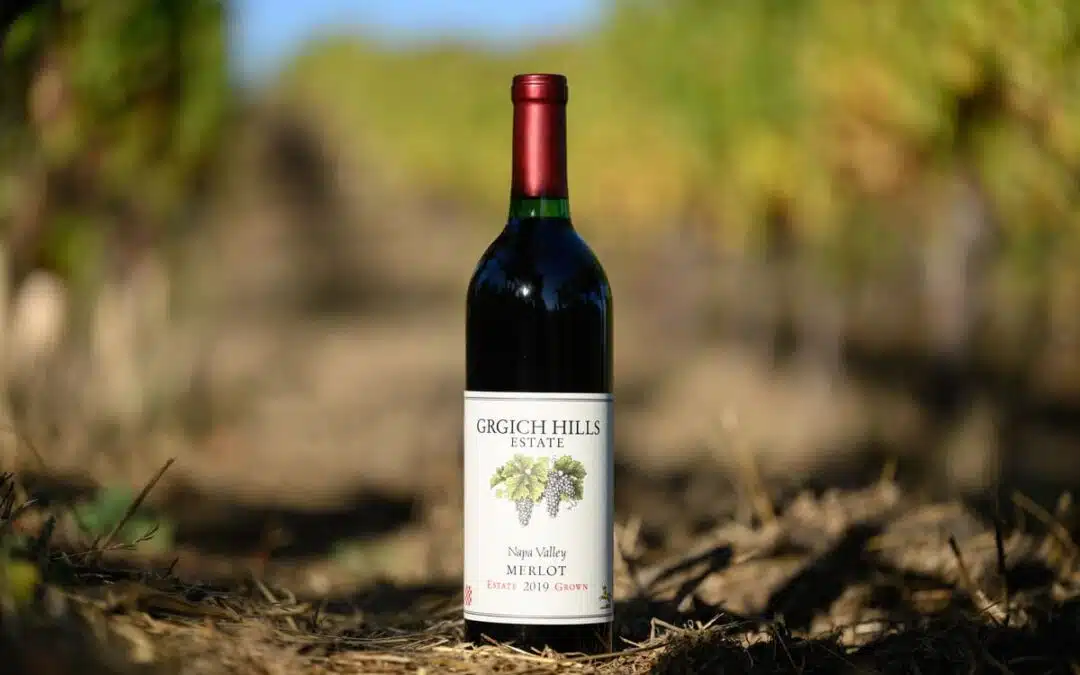Earth Month in Wine Country: The Greening of Grgich Hills Estate

Grgich Hills Estate has been in the business of sustainability and thinking green since 2000. Though our farming practices usually take center stage when it comes to talk about our environmentalism, we’ve also been focused on reducing waste, conserving energy, and reducing our carbon footprint overall – not just in our vineyards! Each year, we endeavor to improve our sustainability initiatives and become even greener.
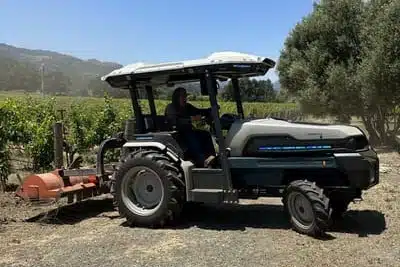
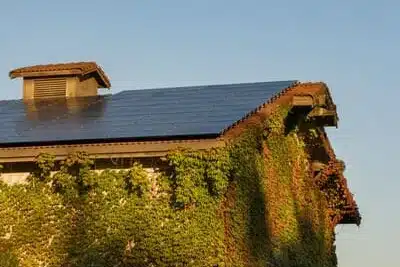
Energy: Solar Savings and Efficiency
Did you know our Napa Valley winery switched to solar power in September of 2006? 13,000 square feet of solar panels were installed atop the winery’s roof that year, and these provide our winery with 95% of our electrical needs. The Sun powers almost all of our operations here at Grgich Hills – our winery, farming equipment, and the vines themselves, which are nourished by photosynthesis!
In the near future, we’d like to transition all of our tractors to run on solar power as well, and we took the first step in accomplishing that goal in 2023 with the purchase of a Monarch Tractor. This autonomous EV is fully powered by the Sun’s rays, and is an important step forward in moving away from fossil fuel-dependent equipment.
As you might imagine, operating a winery comes with an exorbitant air conditioning bill – we cannot allow our cellars to rise above a certain temperature, or else all of the wine we store will be ruined. But it seems a waste to have air conditioners running when the temperatures outside are below that threshold, right? So, we have a system of fans and a sensor that activates them when it’s cold enough outdoors. The fans blow in the cool air, and we don’t have to waste energy.
Water: California’s Most Vital Resource
If you’re a California native, you know just how important water conservation is in the Golden State. Around 40% of our state’s total water usage goes toward agriculture, so it’s important for farmers, including ourselves, to take steps and prevent wasteful water habits.
In the vineyards, we do our best to keep our vines totally dry farmed. In a year with at least average rainfall, we won’t need to water them at all – our healthy soil acts like a sponge and captures all the water the vines will need for the year. When droughts come, however, our younger vineyards receive prescribed waterings, as their roots aren’t yet deep enough to access the water reserves deep underground.
Running a winery comes with extensive water usage as well (think about all those barrels, foudres, and stainless steel tanks that need yearly washing!) so we’ve worked to cut down on waste there, too. We use a high-pressure washing system that cleans barrels with 3 times less water than conventional methods, and because none of the cleaning agents we use are toxic, we recycle that water back into our vineyards.
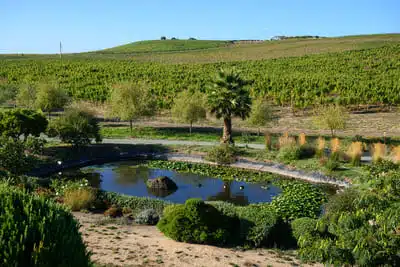
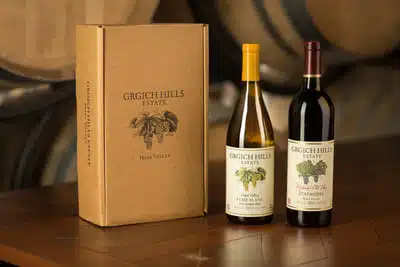
Packaging: Sustainable Winemaking’s Biggest Threat
According to research by Dr. Richard Smart, the transport of wine accounts for 68% of the emissions associated with the wine industry. This bloated percentage is due in large part to the fact that many wineries have equated quality with bottle weight – a notion which celebrated wine critic Jancis Robinson firmly fights to dispel.
In an article reviewing a selection of 2020 Napa Valley Cabernets, she “was impressed by how relatively modest were the bottle weights of all the Grgich Hills wines (which had the additional advantage of tasting good too).”
Ten years ago, we began reducing the weight of our bottles, starting with a bottle that weighed 600 grams. Every year since, we’ve reduced the weights of our bottles, and this year we’ll be bottling with 390 gram bottles – a 35% decrease from where we started.
Farming: You knew we had to…
Regenerative farming is the bread and butter of our vineyards, and for good reason – not only does it allow us to create quality wines with a profound sense of place, it’s actively healing (or regenerating, if you will) our Earth.
Measuring soil organic matter is one of the most important ways we can track the way our farming helps fight global warming. Increases in soil organic matter represent carbon dioxide (the most infamous greenhouse gas) that’s taken out of the atmosphere and stored in the earth.
Bernat Sort-Costa, Our Regenerative Organic Research Manager, has calculated that for each 1% increase in soil organic matter, we are sequestering 36,730 kg of carbon per acre. Across our 365 acres, all this adds up to a whopping 14,858 US tons of carbon stored. That’s the equivalent of 228 airplane flights from New York to Los Angeles!
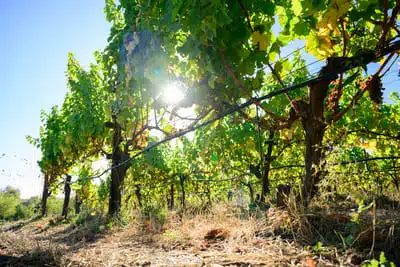
We work hard, so green choices are easier for you
It isn’t easy being green, but part of the reward of all this hard work, research, education, and enacting change is knowing that we’re empowering wine consumers to make environmentally conscious choices at home as well! You can feel good knowing that when you pick up a (noticeably lighter) bottle of Grgich Hills, all the processes that went into crafting it were thoughtfully considered with the good of the Earth top of mind.

